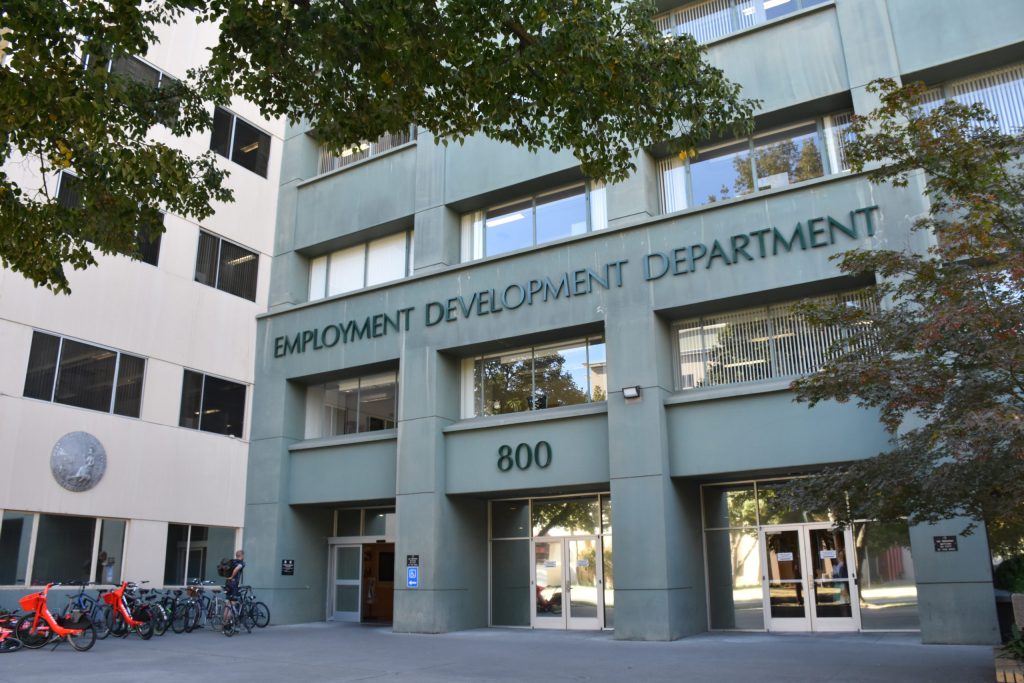L.A. County’s jobs picture suffered a triple whammy in January.
First, figures released March 8 from the state Employment Development Department showed the county’s unemployment rate rising to 5.4% in January from a revised 5.2% in December. The rate is now at its highest level in nearly two years.
Those same figures also showed the county losing 70,000 payroll jobs in January, largely due to seasonal factors such as the end of the holiday shopping season and traditionally slow leisure and hospitality activity. Large drops in payrolls almost always occur in January, but this year’s plunge was larger than most.
Finally, the department, along with the Bureau of Labor Statistics, completed their annual revision of the data used to calculate the payroll jobs figures and the results were devastating for the county. Roughly 110,000 payroll jobs disappeared in this data revision last year – one of the largest drops in recent years. These are not strictly jobs losses; rather they reflect what is now in hindsight an overestimation of the number of payroll jobs in the county throughout the past year.
In broader terms, this sharp downward revision now means the county still has not fully recovered from the 780,000 jobs lost during the spring 2020 pandemic shutdown – a milestone thought to have been passed in late 2022. That recovery is now coming up about 10% short; it will likely take a few more months of growth before the payroll jobs figure once again reaches that milestone.
Unemployment blues
The January unemployment rate of 5.4% was up considerably from the 5.0% level for the same month last year. It was also slightly above the 5.2% statewide average for January, though way above the national rate of 3.7%.
According to the Employment Development Department, the jump in the unemployment rate was due to both a drop of 5,000 in the number of L.A. County residents who reported they were working and an increase of 7,000 in the number of residents who reported they were unemployed.
The agency also provided unemployment rates for the 88 cities in Los Angeles County, though these rates are not seasonally adjusted like the countywide rate. The unadjusted rates for the two largest cities – Los Angeles and Long Beach – were 6.2% and 5.8% respectively. Among cities with labor forces exceeding 10,000 people, the city with the lowest unemployment rate was Lomita at 2.7%, while the city with the highest rate was Calabasas at 8.4%.
Seasonal payroll employment drops
Turning to January’s payroll jobs loss, the drop of 70,000 from December was significantly more than the 52.000 drop during January of last year. However, this plunge was entirely due to seasonal factors. Indeed, the Employment Development Department also releases a seasonally adjusted payroll jobs figure and looking at those figures showed an increase of nearly 16,000 jobs in January from December.
But the industry breakdown figures are not seasonally adjusted. The industry sector with the biggest drop in payroll jobs in January compared to December was retail trade, down 14,800 jobs. That was followed by professional/business services (down 10,900 jobs) followed by arts/entertainment/recreation (down 9,500 jobs). The motion picture/sound recording industry shed 5,000 jobs in January; this drop came in spite of the writers and actors strikes being settled a few months back.
The only sector of the county’s economy to show any payroll job gains at all in January was wholesale trade, which rose by 1,900 jobs.
For the 12-month period ending in January, the county’s payroll employment increased by 24,000 jobs, or 0.5%. This was the slowest year-over-year job growth rate since spring of 2021.
The biggest jobs gainer during those 12 months was health care/social assistance, up 38,600 jobs. That was completely offset by the drop of 38,000 jobs in the motion picture/sound recording industry over those 12 months, which were dominated by the twin strikes.
Other sectors showing gains during the 12 months ending in January were private education and accommodation/food services, which were each up by about 13,000 jobs. On the flip side, the manufacturing sector continued its long decline, shedding about 3,700 jobs during the 12 months ending in January.
